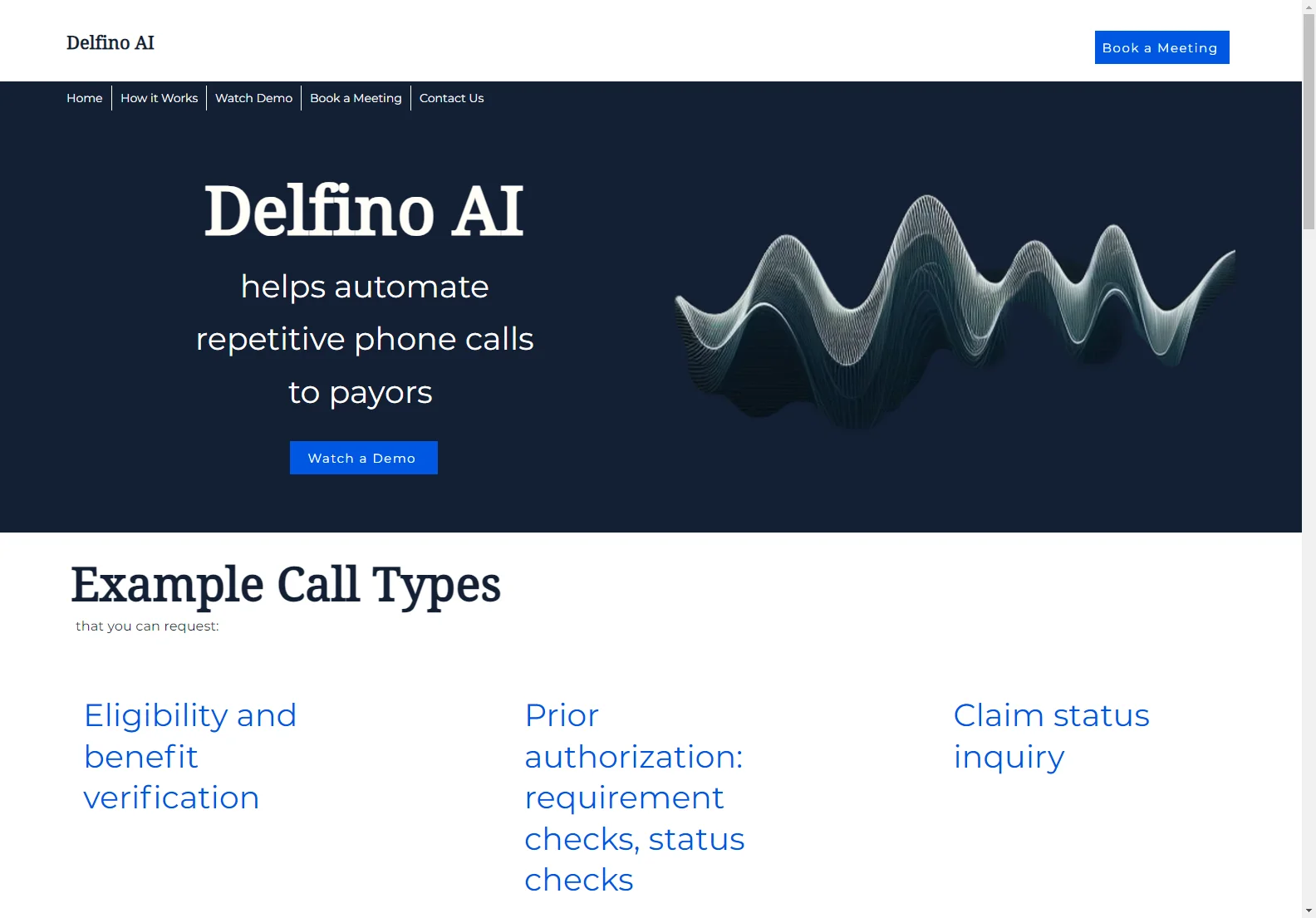Delfino AI: Automating Payor Calls with AI
Delfino AI is an AI-powered platform designed to automate repetitive phone calls to payors, saving you valuable time and resources. It handles tasks such as eligibility verification, prior authorization checks, and claim status inquiries. This allows your team to focus on higher-value tasks.
How Delfino AI Works
- Make Your Call Request: Submit your request with the necessary patient information and questions. For example, you might ask: "Is the provider in-network?", or "What is the copay?".
- We Place the Call: Our AI-powered platform will call the payor and ask your questions. The system is capable of navigating IVRs, waiting on hold, and conducting conversations with live representatives.
- Human Fallback: If our AI encounters any difficulties completing the call, our human team steps in to ensure you receive the necessary information.
- Receive the Answers: The answers to your questions are then relayed back to you efficiently.
Key Benefits
- Save Time: Automate tedious phone calls, freeing up your staff.
- Resource Optimization: Redirect your team's efforts towards more strategic initiatives.
- Knowledge Retention: Prevent knowledge loss due to staff turnover.
- Scalability: Easily adapt to changing support needs.
- HIPAA Compliance: Delfino AI adheres to HIPAA regulations for secure data handling.
Call Types Supported
- Eligibility and benefit verification
- Prior authorization: requirement checks and status checks
- Claim status inquiry
Comparison to Other Solutions
While several other solutions offer automated calling features, Delfino AI distinguishes itself through its advanced AI capabilities, including superior natural language processing and a robust human fallback system. This ensures a higher success rate and more accurate information retrieval compared to simpler automated systems.
Conclusion
Delfino AI offers a powerful solution for healthcare providers seeking to streamline their payor communication processes. By automating repetitive calls, Delfino AI improves efficiency, reduces administrative burden, and ultimately allows healthcare professionals to focus on patient care.

